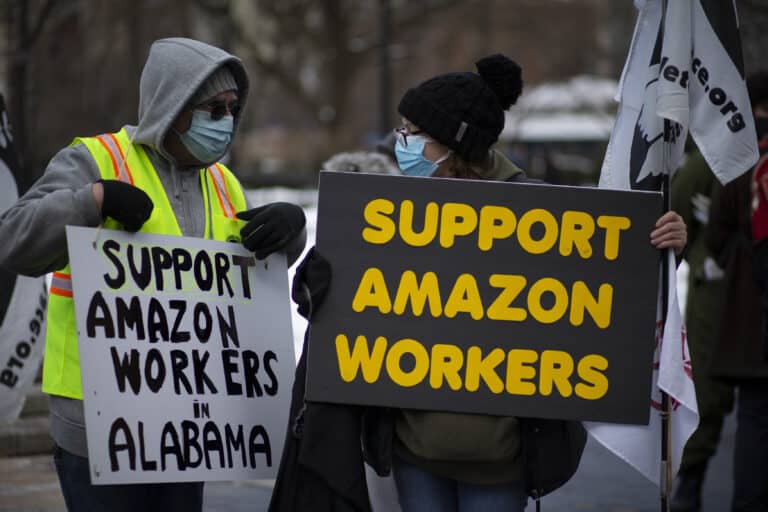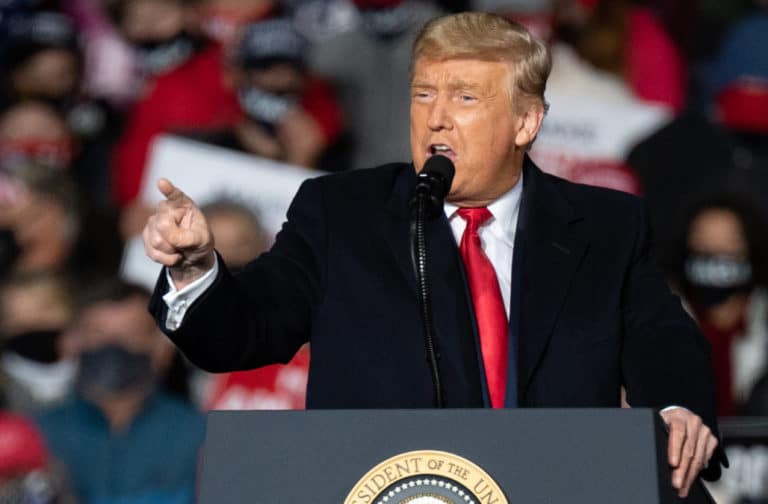
Andrew Strom is an Associate General Counsel of Service Employees International Union, Local 32BJ in New York, NY.
In 2019, I wrote about how the NLRB’s decision in Ridgewood Health Care Centertook away one of the few effective remedies for employer misconduct. This was a case where a new employer took over a business and refused to hire the predecessor’s employees to avoid a bargaining obligation with the workers’ union. The old remedy would have required the employer to restore the predecessor’s terms and conditions, and then bargain with the union. The Trump Board instead allowed the employer to start bargaining from the terms and conditions it had unilaterally imposed. But, while the Trump Labor Board gutted the remedy available to the workers, it had no trouble concluding that the employer had illegally refused to hire workers on account of their union affiliation and illegally interrogated workers about their union membership. Now, an Eleventh Circuit panel consisting of three Trump appointees has decided that even a partial victory for a union is too much to take.
Ridgewood owned a nursing home in Jasper, Alabama, that it had leased to a company called Preferred Health Holdings II. Workers at the facility had been represented by the Steelworkers Union for many years. After Ridgewood was sold to a new owner, Joette Kelley Brown, Ridgewood decided to operate the nursing home itself. To keep the nursing home running, Ridgewood needed to retain as many of the incumbent workers as possible, but if a majority of the new workforce consisted of the predecessor’s union-represented workers, then Ridgewood would have to recognize and bargain with the Steelworkers Union. Brown originally told workers that Ridgewood would hire 99.9% of the incumbent employees, but its initial workforce of 101 employees consisted of only 49 former Preferred employees — just enough to avoid a bargaining obligation.
The Trump NLRB unanimously agreed that Preferred was guilty of discriminatory hiring. To prove discriminatory intent, the Board often looks to evidence that the employer committed other unfair labor practices. Here, one of those illegal acts was interrogating applicants about their Union membership. At the trial, four workers testified that they were asked during job interviews whether they were Union members. Ridgewood never offered any explanation for making these inquiries, and the Board has long held that it is illegal for employers to ask job applicants about their union membership for the same reason that it is illegal to ask job applicants about their age, their religion, or whether they have any disabilities.
The Board accepted Ridgewood’s justifications for refusing to hire some of the predecessor’s employees, but it rejected Ridgewood’s claim that it refused to hire four workers because they had previously been discharged from another facility that Ridgewood owned. No workers were told of the existence of such a policy and Brown had previously assured all the workers that a prior discharge from a Ridgewood facility would not disqualify them. If Ridgewood had hired those additional four workers, then the former Preferred employees would have formed a majority of the workforce when Ridgewood took over (53 out of 101), and Ridgewood would have had an obligation to recognize and bargain with the Steelworkers.
Three weeks after Ridgewood took over operations, Brown sent a letter to all employees urging them not to sign union authorization cards, and advising them “of the many unionized plants that have shut down around the country.” In follow-up meetings, when asked what she would do if the Union ended up representing the workers, Brown said it was possible she would close the facility. The Board also relied on this threat to establish Ridgewood’s anti-union animus.
In the Eleventh Circuit, the case was heard by three Trump appointees – Kevin Newsom, Elizabeth Branch, and a district court judge, Stan Baker. The opinion should be shocking, but, as is typical of circuit court decisions, it generated hardly any coverage in the media. Regarding the Board’s finding that questioning job applicants about their union membership amounted to coercive interrogation (a rule consistently applied by the Board for many years), the Trump judges faulted the Board for failing to apply an eight factor test used by the Eleventh Circuit. Those factors are (1) the history of the employer’s attitude toward its employees; (2) the information sought; (3) the rank of the company official; (4) the place and manner of the conversation; (5) the truthfulness of the worker’s answer; (6) whether the employer had a valid purpose for making the inquiry; (7) whether the valid purpose was communicated to the worker; and (8) whether the employer assured the worker there would be no reprisals. Rather than remand to allow the Board to apply the test, the Trump judges just decided that the inquiries were not coercive. The judges conceded that four of the factors supported the coercion finding — the questions concerned union membership, they were asked by high-ranking officials, they were asked during job interviews, and Ridgewood made no promise that reprisals would not occur. If Ridgewood had a valid purpose for asking about union membership, presumably Brown would have known about it. But she testified that she never instructed her managers to make the inquiries. Obviously, this factor should also weigh in favor of finding that the questioning was coercive. Instead, the Trump judges apparently placed the burden on the General Counsel to prove a negative, finding that because the record did not show whether there was a valid purpose, the factor was neutral. They reached this conclusion without even suggesting what conceivable valid purpose could exist for asking workers about their union membership during job interviews.
The Trump judges likewise dismissed the Board’s finding that Brown’s statement that she might close the facility if she had to recognize the Union amounted to a threat. They reached this conclusion while acknowledging the Supreme Court’s holding in NLRB v. Gissel Packing Co., that a prediction “must be carefully phrased on the basis of objective fact.” Here, Brown did not provide any facts when she told workers that closure was a possibility. The judges simply supplied the facts for Brown. They decided that what Brown really meant was that Ridgewood might not be able to afford to pay the wages and benefits that workers had received from Preferred.
Having disposed of the evidence the Board relied upon to establish animus toward the Union, the Trump judges decided that it was not even necessary to consider whether the explanation offered by Ridgewood for failing to hire the four workers was pretextual. And just like that, the workers lost their union representation.
The author of this opinion, Elizabeth Branch, was the oldest panel member at age 53. And Trump appointed dozens of other judges just like these three, all of whom stand as obstacles to any efforts by Biden’s appointees on the NLRB to vigorously protect the rights of workers. On some level, it’s not possible to insulate the Board’s decisions from hostile judges, but, at a minimum, the Board should rely on its experience to articulate bright-line rules and explain the rationale for those rules. For instance, the Board could explain in a future case why it is always illegal for employers to ask job applicants if they are union members.








Daily News & Commentary
Start your day with our roundup of the latest labor developments. See all
December 13
In today’s News & Commentary, the Senate cleared the way for the GOP to take control of the NLRB next year, and the NLRB classifies “Love is Blind” TV contestants as employees. The Senate halted President Biden’s renomination of National Labor Relations Board Chair Lauren McFerran on Wednesday. McFerran’s nomination failed 49-50, with independents Joe […]
December 11
In today’s News and Commentary, Biden’s NLRB pick heads to Senate vote, DOL settles a farmworker lawsuit, and a federal judge blocks Albertsons-Kroger merger. Democrats have moved to expedite re-confirmation proceedings for NLRB Chair Lauren McFerran, which would grant her another five years on the Board. If the Democrats succeed in finding 50 Senate votes […]
December 10
In today’s News and Commentary, advocacy groups lay out demands for Lori Chavez-DeRemer at DOL, a German union leader calls for ending the country’s debt brake, Teamsters give Amazon a deadline to agree to bargaining dates, and graduates of coding bootcamps face a labor market reshaped by the rise of AI. Worker advocacy groups have […]
December 9
Teamsters file charges against Costco; a sanitation contractor is fined child labor law violations, and workers give VW an ultimatum ahead of the latest negotiation attempts
December 8
Massachusetts rideshare drivers prepare to unionize; Starbucks and Nestlé supply chains use child labor, report says.
December 6
In today’s news and commentary, DOL attempts to abolish subminimum wage for workers with disabilities, AFGE reaches remote work agreement with SSA, and George Washington University resident doctors vote to strike. This week, the Department of Labor proposed a rule to abolish the Fair Labor Standards Act’s Section 14(c) program, which allows employers to pay […]